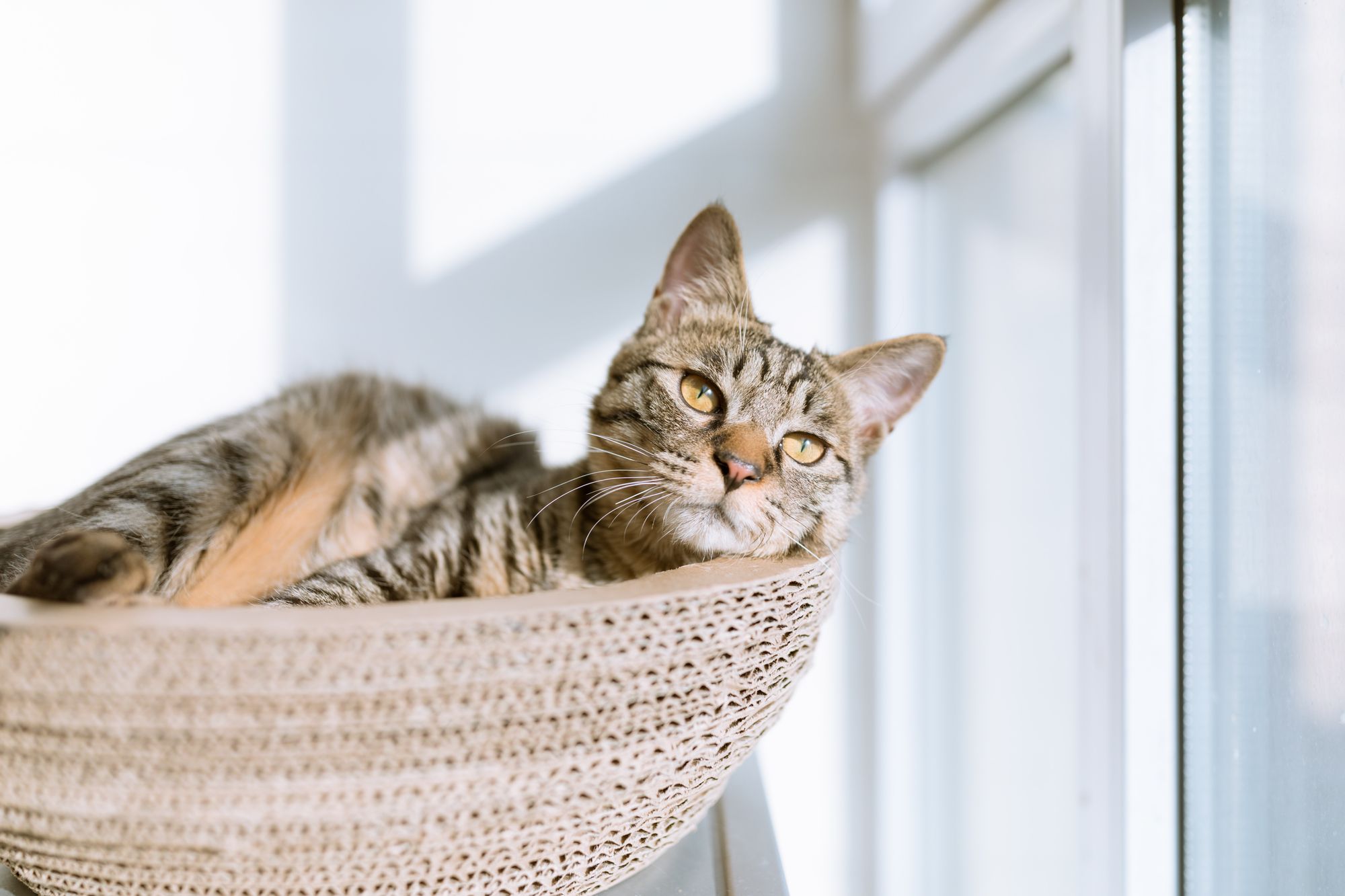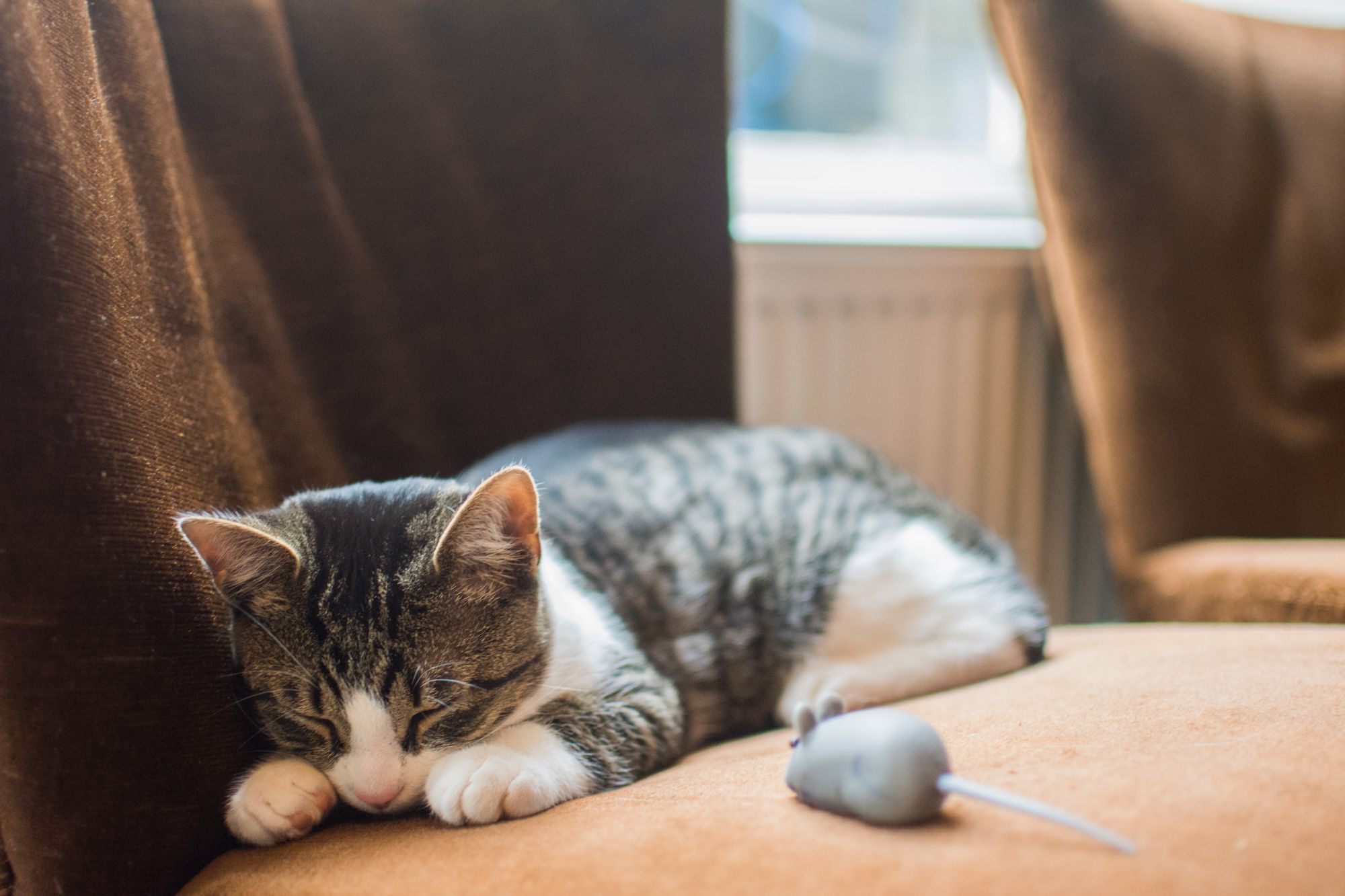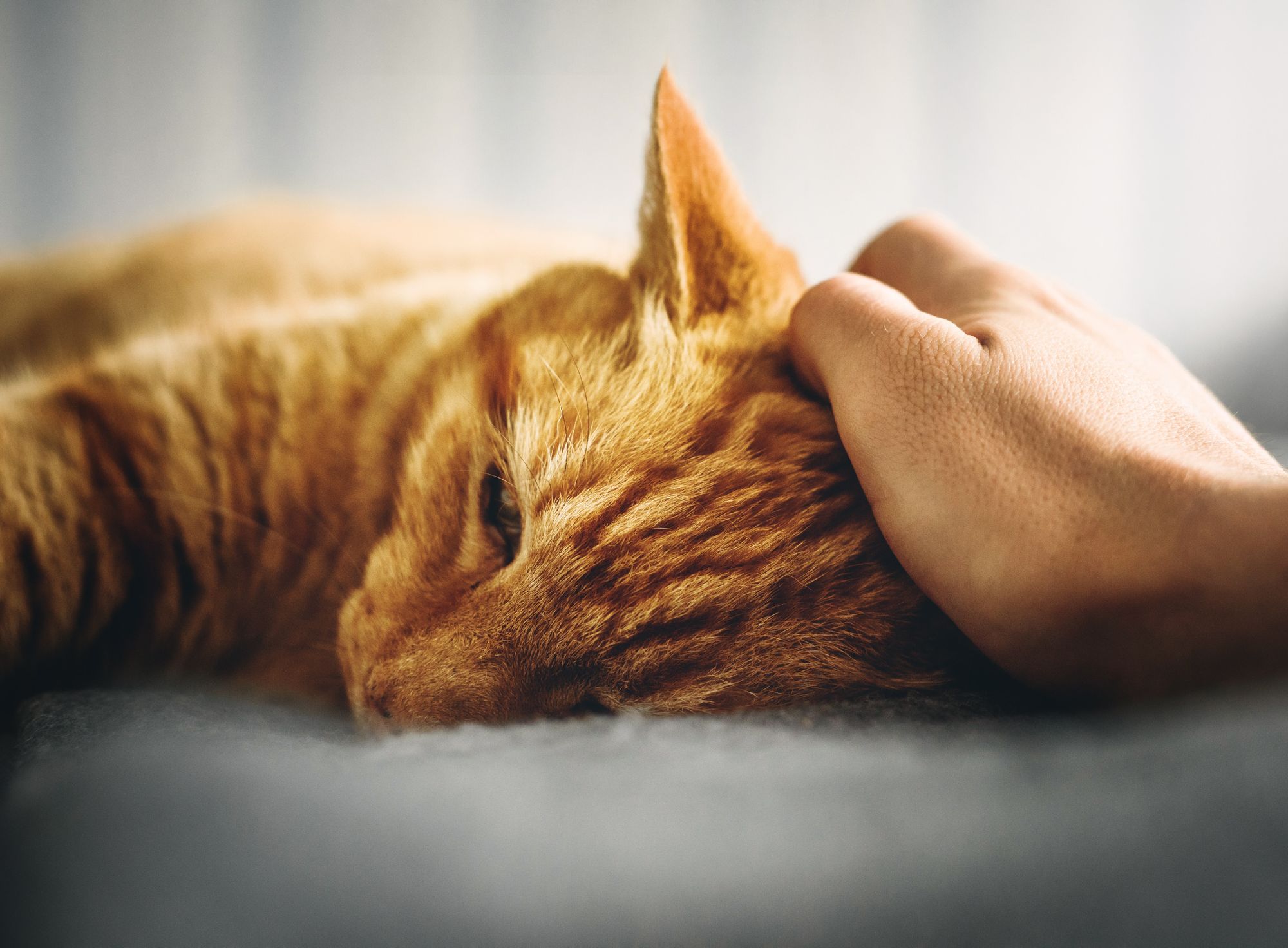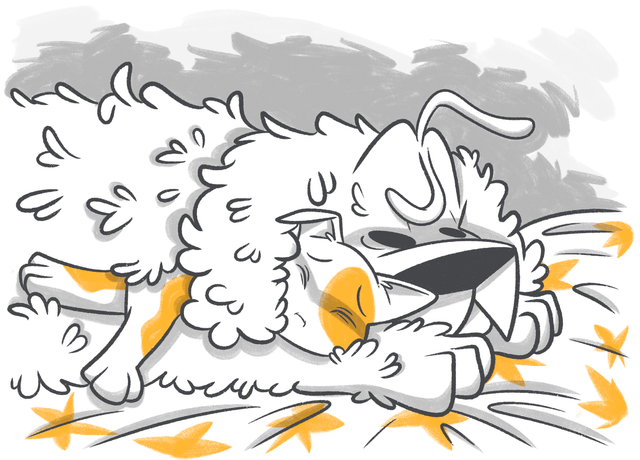The kidneys play a crucial role in filtering waste from the blood. This means that when cats have kidney problems, a condition called deadly azotemia occurs. This means that dangerous levels of waste products like ammonia build up in the blood. Sadly, kidney problems in cats are widespread, especially since cats often don't drink enough water.
Using the most up-to-date research on feline nephrology (nephrology means the study of the kidneys), we can give you the best information you need to maintain your cat's renal health. So, let's explore some common causes of kidney problems in cats and their associated conditions, symptoms to look out for, and potential complications.
Stop Googling - Ask a Real Vet
Content:
- 11 Common Kidney Problems in Cats
- Symptoms of Kidney Problems in Cats
- Final Stages of Kidney Problems in Cats
- Treatment for Kidney Problems in Cats
- How Can the Emergency Fund Help with Treatment
- FAQs
- Conclusion
11 Common Kidney Problems in Cats
Common kidney problems in cats include kidney disease and failure, infections, stones, cysts, birth defects, tumors, and injury or damage. Remember, many cat diseases, like heart issues or the feline leukemia virus (FeLV), can lead to kidney problems. A sure sign of kidney failure in cats is weakness in the back leg or walking with stiff legs.
Chronic Kidney Disease
Chronic Kidney Disease is a progressive condition where the kidneys gradually lose their ability to function.
Studies show that common causes include:
- age-related degeneration;
- genetic predisposition;
- infections;
- and prolonged use of certain medications, such as nonsteroidal anti-inflammatory Drugs (NSAIDs).
Symptoms may include:
- increased thirst and urination;
- weight loss;
- decreased appetite;
- lethargy.
CKD requires long-term management, specialized diets, and supportive care.
Kidney Failure
Kidney failure, or renal failure, refers to the complete loss of kidney function. It can result from untreated or advanced CKD, acute kidney injury, or other underlying health conditions. Symptoms may include:
- severe dehydration;
- vomiting, diarrhea;
- weakness;
- a rapid decline in overall well-being.
One of the biggest tip-offs for kidney failure is if you see your cat's back twitching. In the case of renal failure, a cat needs to see a veterinarian immediately.
Kidney Infection In Cats
Pyelonephritis is a bacterial infection that affects the kidneys. It usually happens when bacteria travel up the urinary tract and reach the kidneys. This sometimes occurs when a cat has a congenital problem like an ectopic ureter.
Symptoms may include:
Pyelonephritis can lead to kidney damage or even sepsis (blood poisoning) if left untreated.
Congenital Kidney Problems in Cats
Many kidney problems in cats are issues they are born with. These include kidney malformations like renal dysplasia and hypoplasia. These conditions involve the abnormal development of the kidneys before birth. They can lead to decreased kidney function, urinary tract abnormalities, and infections.
Symptoms may include:
- stunted growth;
- urinary accidents or incontinence;
- recurring urinary tract infections.
Kidney Cysts
Kidney cysts are fluid-filled sacs that can develop in the kidneys. Two common types are:
Polycystic Kidneys: A hereditary condition where numerous cysts form in the kidneys, gradually impairing their function.
Symptoms of polycystic kidneys in cats may include:
- increased thirst;
- frequent urination;
- high blood pressure;
- kidney pain.
Simple Kidney Cysts and Pseudocysts: These are single or small clusters of cysts that typically don't cause significant kidney dysfunction. In most cases, vets find them by accident during routine checkups.
Kidney Enlargement In Cats
Kidney enlargement, also known as renal enlargement, is a kidney problem primarily due to other issues. It may be caused by polycystic kidneys, tumors, infections, or inflammation.
Symptoms of kidney enlargement in cats include:
- abdominal distension or swelling;
- discomfort;
- changes in urinary habits;
- weight loss.
To treat enlarged kidneys, a vet must figure out the underlying cause.
Kidney Stones (Uroliths)

Kidney stones are hard mineral deposits that can form in the urinary tract and typically cause a lot of pain in our cats. There are a few types of feline kidney stones, each formed from a complex mixture of minerals.
The most common types are made of struvite, calcium oxalate, and urate.
The type of stone can be affected by factors like the cat's urinary PH (too high or too low can create stones), excess minerals, infections, inflammation, and even chemicals in the urine. MSD Manual research shows that cats have highly acidic urine, which makes an ideal environment for kidney stones to form.
Symptoms include:
- blood in urine;
- painful urination;
- frequent urination;
- and abdominal discomfort.
Treatment may involve dietary changes, medications, or surgical intervention.
Glomerular Disease
Glomerular diseases affect the tiny filtering units (glomeruli) in the kidneys. Some forms of glomerular disease start with an autoimmune disease. But veterinary sources also link it with chronic infections, feline leukemia, inflammatory diseases, or certain cancers.
Symptoms may include:
- proteinuria (excessive protein in urine);
- fluid retention;
- high blood pressure;
- decreased appetite.
Acute Kidney Injury
Acute Kidney Injury occurs suddenly, often due to trauma, dehydration, ingestion of toxins, or severe infections. Symptoms may include decreased or no urine output, vomiting, loss of appetite, and weakness. Immediate veterinary care is crucial to address the underlying cause and support kidney function.
Cardiorenal Syndrome
In NCBI studies, cardiorenal syndrome refers to a complex interplay between heart and kidney dysfunction. Heart conditions such as congestive heart failure can impair kidney function, and vice versa. Symptoms may include fluid retention, difficulty breathing, increased thirst, and fatigue.
Kidney Tumors
Kidney tumors, such as nephroblastoma, can develop in the kidneys of young cats. These tumors arise from the abnormal growth of kidney tissue in the womb.
Symptoms may include:
- abdominal swelling;
- weight loss;
- decreased appetite;
- lethargy;
- blood in the urine.
Taking your cat for regular checkups is the best way to deal with tumors since the earlier your vet can detect them, the better your cat's chances are for successful treatment.
Symptoms of Kidney Problems in Cats

Cats are masters at hiding their pain and discomfort, but certain signs may indicate kidney problems. Above, we touched on some of the symptoms you may see in specific feline kidney problems, but they can still be hard to notice before they become serious.
By paying attention to these symptoms, you can take early action and seek veterinary care.
Here are some common symptoms to watch for:
- Increased thirst and urination;
- Changes in appetite (such as refusing to eat);
- Lethargy and weakness;
- Twitching back legs;
- Still-legged gaits and weak back legs;
- Vomiting and diarrhea;
- Meowing and distressed sounds;
- Bloated stomach.
Monitoring these symptoms can be easier with the help of modern technology, such as the Petcube Pet Camera. With this camera, you can keep an eye on your cat when you're away from home and quickly pick up on any symptoms of kidney problems.
Final Stages of Kidney Problems in Cats
Cat kidney problems can progress to the final stages, requiring focused care and attention. Here's an overview of the stages of kidney disease in cats and the end stages of kidney problems:
Kidney Disease Stages
Kidney disease in cats can be broken down into the following stages:
Stage 1 Kidney Disease (Early Kidney Insufficiency): During this initial stage, the kidneys may show mild damage, but their ability to function is still relatively normal. Often, there are no obvious symptoms, and the disease may only be detected through routine bloodwork or urine analysis.
Stage 2 Kidney Disease (Mild Kidney Insufficiency): Stage 2 shows a slight decline in kidney function. The kidneys may have a reduced ability to filter waste products and maintain fluid and electrolyte balance. Some cats may start exhibiting subtle symptoms such as increased thirst, mild weight loss, or changes in urination patterns.
Stage 3 Kidney Disease (Moderate Kidney Insufficiency): At stage 3, there is a noticeable decline in kidney function. Cats may start experiencing more significant symptoms, including increased drinking and urination, decreased appetite, weight loss, lethargy, and vomiting.
Stage 4 Kidney Disease (Severe Kidney Insufficiency): Stage 4 represents advanced kidney disease with a significant loss of kidney function. Cats at this stage may display severe symptoms such as extreme lethargy, pronounced weight loss, poor appetite, frequent vomiting, dehydration, and anemia (which you will see as pale gums).
End Stages of Kidney Failure
In advanced cases of kidney failure, the kidneys lose their ability to function effectively. Symptoms become more severe, including extreme weakness, severe weight loss, persistent vomiting, and a noticeable decline in overall well-being. At this stage, supportive care is crucial to maintaining the cat's comfort and quality of life.
Treatment for Kidney Problems in Cats

When it comes to treating kidney problems in cats, the goal is to slow down the progression of the disease, manage symptoms, and improve the cat's overall quality of life. Here are some common treatment approaches:
-
Veterinarians may prescribe medications to help manage symptoms, control blood pressure, and improve kidney function. Additionally, certain supplements and renal support diets may be recommended to support kidney health.
-
Intravenous or subcutaneous fluids can be administered to help maintain hydration and flush toxins from the body. Fluid therapy plays a crucial role in managing kidney problems, especially in cases of dehydration or acute kidney injury.
-
In some cases, kidney transplants may be considered a treatment option for cats with end-stage kidney disease. This procedure involves surgically replacing a cat's diseased kidney with a healthy kidney from a compatible donor, either a living or deceased donor. A kidney transplant offers the potential for improved long-term kidney function and quality of life.
How Can the Emergency Fund Help with Treatment
Dealing with sudden kidney issues in cats can be both emotionally and financially challenging. That's where the Petcube Emergency Fund comes in to offer valuable assistance. This fund is specifically designed to help pet owners cover the costs of lifesaving emergency treatments, including those related to sudden kidney issues like renal failure.
With the Petcube Emergency Fund, you can gain peace of mind knowing you have a safety net to rely on when your cat requires immediate kidney-related care. For less than $1 a day, the fund provides coverage of up to $3000 for qualifying emergency treatments. With this financial support, you can avoid unexpected debt or financial crises that may arise due to the cost of emergency veterinary care.
FAQs
How long can a cat live with kidney disease?
The lifespan of a cat with kidney disease varies, but with proper management, some cats can live for several years.
How to make a cat with kidney disease comfortable?
Providing a renal-friendly diet, managing symptoms, administering prescribed medications, and ensuring a calm and stress-free environment can help make a cat with kidney disease more comfortable.
Conclusion
Kidney problems can significantly impact a cat's health and well-being. By understanding the common causes, such as kidney disease, infections, congenital issues, cysts, stones, and tumors, cat owners can be vigilant for symptoms like increased thirst, changes in appetite, weakness, meowing, and a bloated stomach. Early detection and prompt veterinary care are crucial for managing kidney problems.
Was this article helpful?
Help us make our articles even better









